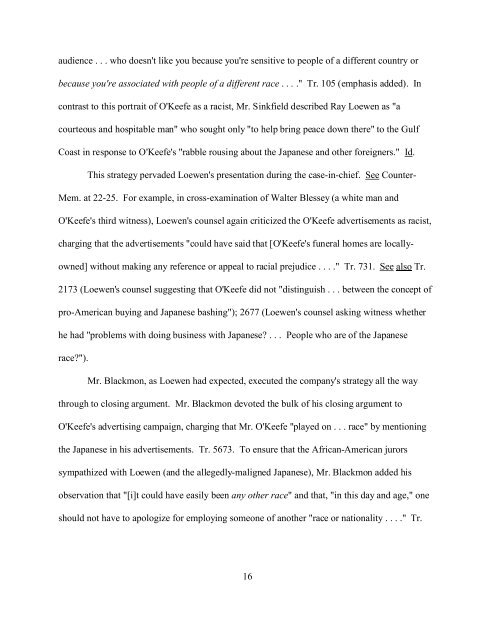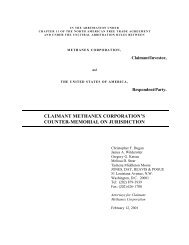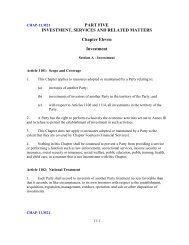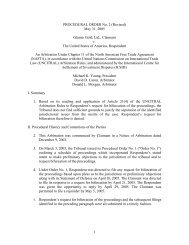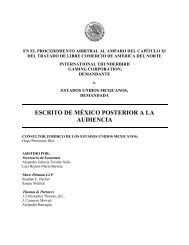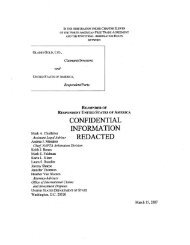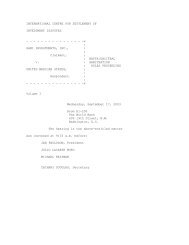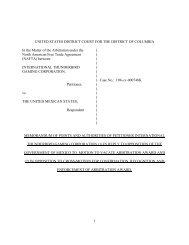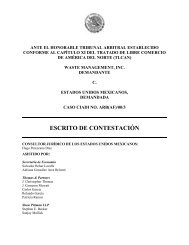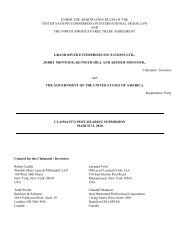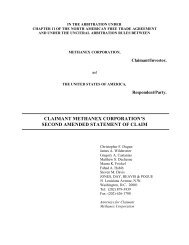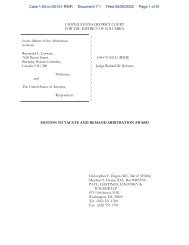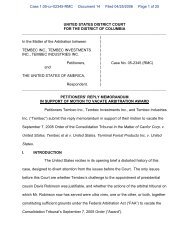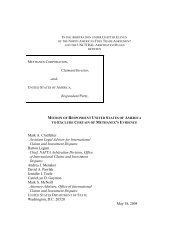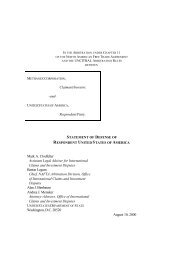THE LOEWEN GROUP, INC. and RAYMOND L. LOEWEN, v. THE ...
THE LOEWEN GROUP, INC. and RAYMOND L. LOEWEN, v. THE ...
THE LOEWEN GROUP, INC. and RAYMOND L. LOEWEN, v. THE ...
You also want an ePaper? Increase the reach of your titles
YUMPU automatically turns print PDFs into web optimized ePapers that Google loves.
audience . . . who doesn't like you because you're sensitive to people of a different country or<br />
because you're associated with people of a different race . . . ." Tr. 105 (emphasis added). In<br />
contrast to this portrait of O'Keefe as a racist, Mr. Sinkfield described Ray Loewen as "a<br />
courteous <strong>and</strong> hospitable man" who sought only "to help bring peace down there" to the Gulf<br />
Coast in response to O'Keefe's "rabble rousing about the Japanese <strong>and</strong> other foreigners." Id.<br />
This strategy pervaded Loewen's presentation during the case-in-chief. See Counter-<br />
Mem. at 22-25. For example, in cross-examination of Walter Blessey (a white man <strong>and</strong><br />
O'Keefe's third witness), Loewen's counsel again criticized the O'Keefe advertisements as racist,<br />
charging that the advertisements "could have said that [O'Keefe's funeral homes are locally-<br />
owned] without making any reference or appeal to racial prejudice . . . ." Tr. 731. See also Tr.<br />
2173 (Loewen's counsel suggesting that O'Keefe did not "distinguish . . . between the concept of<br />
pro-American buying <strong>and</strong> Japanese bashing"); 2677 (Loewen's counsel asking witness whether<br />
he had "problems with doing business with Japanese? . . . People who are of the Japanese<br />
race?").<br />
Mr. Blackmon, as Loewen had expected, executed the company's strategy all the way<br />
through to closing argument. Mr. Blackmon devoted the bulk of his closing argument to<br />
O'Keefe's advertising campaign, charging that Mr. O'Keefe "played on . . . race" by mentioning<br />
the Japanese in his advertisements. Tr. 5673. To ensure that the African-American jurors<br />
sympathized with Loewen (<strong>and</strong> the allegedly-maligned Japanese), Mr. Blackmon added his<br />
observation that "[i]t could have easily been any other race" <strong>and</strong> that, "in this day <strong>and</strong> age," one<br />
should not have to apologize for employing someone of another "race or nationality . . . ." Tr.<br />
16


